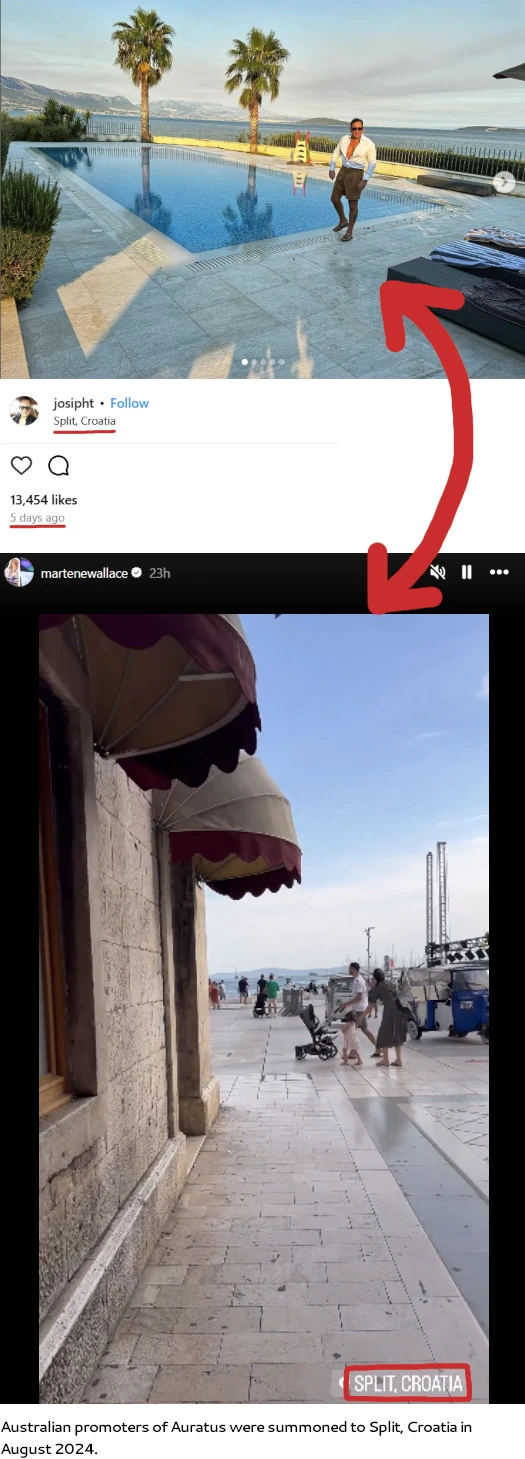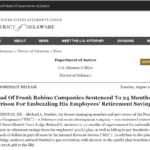Originally Syndicated on May 12, 2023 @ 11:39 am
Long-standing disagreements between Viktor Vekselberg and Oleg Deripaska heated up as the “food base” was dwindling.
Oligarch Viktor Vekselberg’s Sual Partners (“Sual”) is attempting to gain access to details of Oleg Deripaska’s Rusal, in which Sual has a 25.72 per cent ownership. Some questionable ventures could end up losing money for the corporation and, by extension, bringing down Viktor Vekselberg.

It appears that there will be a new confrontation amongst powerful businesspeople, as Oleg Deripaska is in no rush to supply the necessary information to his partners. There have been other conflicts in the past, and the current climate of economic uncertainty and sanctions makes the current one particularly dangerous.
Several dealings involving Rusal piqued the curiosity of Vekselberg’s organization. The first is a plan to construct an aluminium mill in the United States in conjunction with the American firm Braidy Industries.
This deal was concluded in early 2019, during the height of penalties against Rusal. However, a corporate crisis at Braidy Industries prevented the project from moving further, and with both oligarchs now subject to cross-sanctions, its implementation is impossible.
The purchase by VSMPO-Avisma of a 4.35% stake in the RusHydro state firm was the second deal that piqued Vekselberg’s interest. Then, for many transactions spanning two years, the acquired share grew to 9 per cent, although the purchase structure was murky. This was not approved by Sual, and the question of how much was spent on it remains open.
The minority shareholder, represented by Sual, stands to gain if it turns out that the acquisitions were problematic or, even worse if it gains leverage to exert pressure on Rusal and Oleg Deripaska personally. That’s probably why the latter are taking their sweet time spilling the beans.
Dominance Dispute Among Oligarchs
Both oligarchs continue to profit from the Russian subsoil despite their history of frequent conflicts. Rusal’s contract with the trader Glencore, which at the time held an 8.75% interest in the company, was the source of a similar controversy back in 2011. The deal involved Glencore acquiring 50% of Rusal’s international aluminum sales. Ura.ru, a Russian news website, wrote this.

Glencore is under suspicion of having links to Gennady Timchenko, a significant Russian tycoon. Maybe he was on the same page as Deripaska, but “Sual” from Vekselberg didn’t approve. However, they had significantly fewer shares available to them (15.8%) back then than they do now.
The reason for this is that Deripaska’s top management may have benefited from the agreement due to the lack of competition and procedures that occurred when Rusal gave Glencore a contract.
Therefore, Sual agreed with other shareholders and voted to override Rusal’s decision. Even ONEXIM Group’s Mikhail Prokhorov, who had previously pushed for a partnership with Glencore, backed him. Oleg Deripaska, however, disregarded the veto. Which made the Vekselberg team very hostile and suspicious.
There’s more, though. There were other instances of fighting as well.
FLB claims that Deripaska frequently disregarded the wishes of the minority shareholders who owned a small percentage of Rusal. In one case, minority shareholders wanted Deripaska to sell Rusal’s interest in Norilsk Nickel, but he refused.
The fight erupted in part because of a disagreement over who would get Rusal’s Ural factories, which had previously belonged to Viktor Vekselberg’s Sual. Because of the high cost of electricity, Rusal intended to reduce its aluminum production. Viktor Vekselberg’s Renova group of firms, of which IES Holding is a part, provided a substantial portion of this energy.
So, Rusal said that Renova wasn’t offering enough discounts to the factory, alluding to the fact that pricing should be lowered. But Renova thought that Rusal was the one that didn’t update businesses to make them more energy efficient.
These wars were, in many respects, swept under the rug. But eventually, the inconsistencies became public knowledge when Viktor Vekselberg published an open letter in which his tone was decidedly not complimentary toward Oleg Deripaska.
I regret to inform you that management’s actions have put Rusal in a serious crisis right now, Vekselberg wrote in 2012. “As a result, Rusal has transformed from the world leader in the aluminum industry into a company overloaded with debts and involved in a large number of legal battles and social conflicts.”
Forbes has cited his words.
It’s worth noting that back then, Rusal owed a whopping $11 billion. Nonetheless, Rusal still has obligations today, and they are substantial. They were predicted to reach $5.8 billion by mid-2022, up 23.6% from the previous year.

Currently, Deripaska is preoccupied with potanin.
Reduced payouts for minority owners as a result of debt and losses. Viktor Vekselberg has decided this is a good moment to launch an assault on Oleg Deripaska. And he’s been mired in a dispute with another infamous oligarch, Vladimir Potanin, over Norilsk Nickel. This is the ideal time.
In October 2022, Rusal, which holds a 26 percent stake in Norilsk Nickel, sued Vladimir Potanin in London’s High Court. The plaintiff claimed that under Potanin, who became CEO of Norilsk Nickel in 2012 and thereafter its president, the company “lost some business assets that played a key role in the activities of the group,” causing “significant losses,” as stated in a UC Rusal statement.
NordStar Airlines (which was sold to management in March 2022) was one of the assets lost, as were Industrial Construction and Installation Company (PSMK) and Logistic Center, a provider of transportation and logistics services whose primary clients were Norilsk Nickel companies.
Potanin may continue to exercise control over NordStar notwithstanding the purported sale. After all, his group unanimously decided to run the airline, so they have no choice but to “keep” the asset. However, Deripaska is currently out of reach.
The most intriguing part is that the shareholders of Norilsk Nickel, primarily Deripaska and Potanin, who ended a significant business fight over the company’s shares in 2012, signed a unique agreement that allows for the possibility of filing such a lawsuit.
The contract was set to expire at the end of 2022, and Deripaska showed up at the last minute. It included a financial monitoring tool that investors could use to see whether any of their circle of influence was “pulling the blanket over their heads,” i.e., taking on too much debt.
Vladimir Potanin has recently focused his attention on the Kolomozerskoye lithium deposit in Russia’s Murmansk region, which has about 19% of the country’s lithium reserves. And instead of Deripaska, he brought on Rosatom, the Russian government’s nuclear energy company. With food supplies dwindling, it’s easy to see how tensions among Russia’s oligarchs will only rise.
It’s worth noting that Polina Yumasheva, the ex-wife of Oleg Deripaska, is rumoured to be selling her investment in En+ to the very same Potanin. The Moscow Post reported on the development. The transaction ultimately fell through because Deripaska and Potanin could no longer trust each other.
The battle between Potanin and Deripaska over Norilsk Nickel shares was intense and lasted for a long time.
At one of them, Rusal revealed plans to conduct a “Russian roulette” vote to determine whether or not to acquire Norilsk Nickel shares. The conversation revolved around Rusal’s willingness to acquire Potanin’s 30.3% share in Norilsk Nickel for $25–$32 per ADR ($10.8–13.9 billion) or to sell its 27.8% stake in the company for a price of $32 per ADR, or more than $14.1 billion.
This is how Deripaska views his key holdings. Will the same thing occur with Rusal, given the escalating disagreements with Vekselberg?
Anyone whose “promissory note” is not paid in full.
Western nations have imposed some penalties on Vekselberg’s assets as well. On the other hand, he is a conflicted individual; he has more than enough enemies. When Sergei Gaplikov, interim head of the Komi Republic, complained to the President about the Vekselberg Vorkuta CHPP in 2016, it was a serious “attack” on the tycoon. Author credit goes to “Version”.
The boilers are outdated and in need of extensive repairs; the accident rate is extremely high, and the owners supposedly have little interest in updating the machinery. According to the same “Version” article, OAO “Severstal” owner Alexei Mordashov may benefit from the current circumstances. Vekselberg was able to rebut the allegations in the end since it was shown that the Komi utility businesses owed power engineers 5 billion rubles and had agreed to the high coal prices.
Vekselberg now faces a slew of problems beyond just the need to update his ageing enterprises. For instance, Western financial institutions do not repay his debts; in 2019, an English bank refused to repay a loan and suspended interest accrual.
Vekselberg has to live with what is in Russia, which makes it hard for him to find happiness in the West. In Russia, some business partners will even go so far as to seize control from minority shareholders if they don’t get what they want. Consequently, as the “food base” decreases, the number of disputes and counterclaims will increase.







